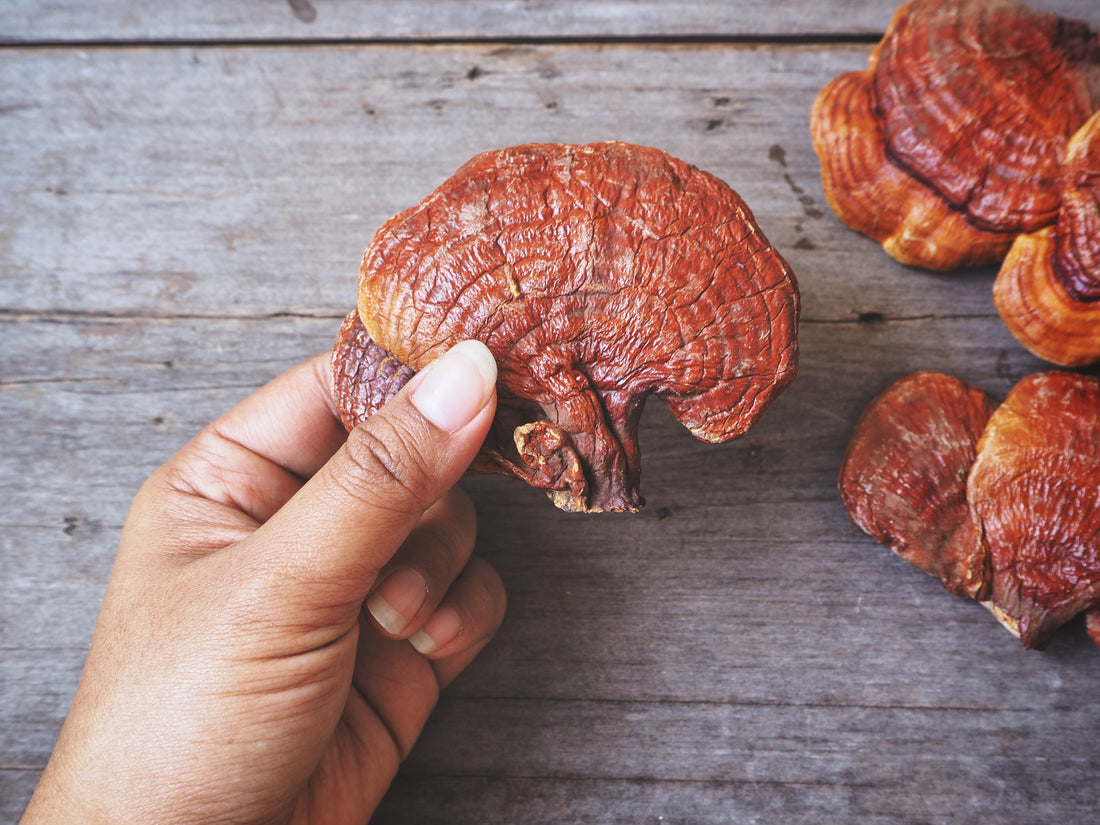The mystical world of mushrooms has fascinated humans for centuries, with certain fungi standing out for their purported health benefits. One such celebrated mushroom is the Reishi, a staple in traditional wellness practices with a history that spans millennia.
Historical Significance of Reishi Mushroom
Reishi mushroom, known scientifically as Ganoderma lucidum, holds a revered place in traditional Chinese wellness practices, dating back over 2,000 years. Once reserved for royalty and the elite, this "mushroom of immortality" has been associated with vitality, longevity, and overall wellness. Over time, as its reputation spread, it began to be recognized globally for its impressive nutrient profile and potential health benefits.
Potential Benefits of Reishi Mushroom
Immune System Support - Compounds in Reishi, like polysaccharides, have demonstrated potential in bolstering the body’s natural defense mechanisms. This support can be particularly beneficial during seasonal changes when our bodies might be more vulnerable.
Anti-inflammatory Properties - Chronic inflammation is now understood to be at the root of many modern ailments. Triterpenes in Reishi are thought to potentially help in reducing inflammation, offering a natural avenue for those seeking relief.
Mental Clarity and Stress Reduction - Anecdotal evidence, combined with preliminary studies, suggests that Reishi might aid in enhancing cognitive function and alertness. Additionally, its potential adaptogenic properties might help the body resist different kinds of stress, promoting an overall sense of well-being.
Note: It's essential to understand that while Reishi mushroom has traditional and anecdotal backing, scientific research is ongoing. It's always recommended to consult with healthcare professionals when considering adding new supplements to one's regimen.
Delving Deeper: How Does Reishi Work?
The myriad potential benefits of Reishi can be attributed to its rich composition of bioactive compounds. Polysaccharides, triterpenes, and peptidoglycans are among the primary constituents that have drawn scientific interest. These compounds interact with our body systems, offering a harmonizing effect that aligns with the traditional understanding of this superfood.
Potential Side Effects
While Reishi mushroom is generally considered safe for most, its introduction should be approached with care. Digestive discomforts, occasional headaches, or minor blood pressure fluctuations are some potential side effects. Always be attentive to one's body and consult with a healthcare provider regarding any concerns.
Conclusion
Reishi mushroom, with its deep historical roots and growing modern interest, offers a bridge between ancient wisdom and contemporary wellness. As with any supplement, its introduction should be thoughtful, seeking the guidance of healthcare professionals to ensure a beneficial and harmonious experience.
DISCLAIMER: This statement has not been evaluated by the Food and Drug Administration. This product is not intended to diagnose, treat, cure, or prevent any disease.
References:
Wachtel-Galor S, Yuen J, Buswell JA, et al. Ganoderma lucidum (Lingzhi or Reishi): A Medicinal Mushroom. In: Benzie IFF, Wachtel-Galor S, editors. Herbal Medicine: Biomolecular and Clinical Aspects. 2nd edition. Boca Raton (FL): CRC Press/Taylor & Francis; 2011.
Lin ZB. Cellular and molecular mechanisms of immuno-modulation by Ganoderma lucidum. J Pharmacol Sci. 2005;99(2):144-53.
Barbieri A, Quagliariello V, Del Vecchio V, Falco M, Luciano A, Amruthraj NJ, Nasti G, Ottaiano A, Berretta M, Iaffaioli RV, et al. Anticancer and Anti-Inflammatory Properties of Ganoderma lucidum Extract Effects on Melanoma and Triple-Negative Breast Cancer Treatment. Nutrients. 2017; 9(3):210.
Gao Y, Zhou S, Jiang W, et al. Effects of ganopoly (a Ganoderma lucidum polysaccharide extract) on the immune functions in advanced-stage cancer patients. Immunol Invest. 2003;32(3):201-15.
Paterson RRM. Ganoderma - A therapeutic fungal biofactory. Phytochemistry. 2006;67(18):1985-2001.
Meng, J., Yang, B. (2019). Protective Effect of Ganoderma (Lingzhi) on Cardiovascular System. In: Lin, Z., Yang, B. (eds) Ganoderma and Health. Advances in Experimental Medicine and Biology, vol 1182.

